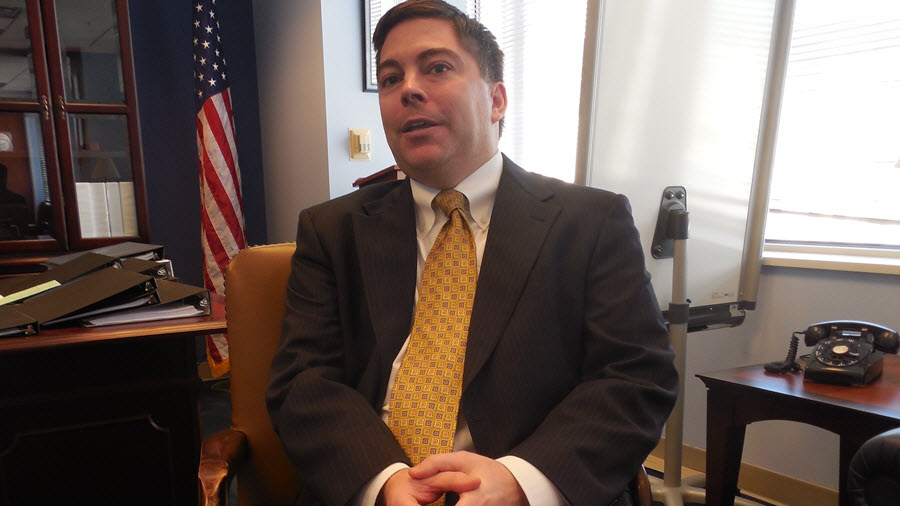O'Rielly: FCC Should Axe 'Zombie' OTT Proceeding

The smarter way to stay on top of broadcasting and cable industry. Sign up below
You are now subscribed
Your newsletter sign-up was successful
Republican FCC commissioner Michael O'Rielly said that the FCC's outstanding proposal to classify over-the-top (OTT) platforms as MVPDs is the sort of 'zombie' proceeding the FCC should finally kill off.
O'Rielly made that proposal in a speech to the Massachusetts Broadcasters Association Thursday (Nov. 14).

The FCC recently concluded that an OTT services are sufficiently MPVD-like to conclude that telco-provided OTT AT&T TV Now, and by extension any similar OTT, is effectively a multichannel video competitor to cable in local markets. But that is different from a years-old (2014) proposal by then FCC chair Tom Wheeler that OTTs be defined as MVPDs for the purposes of program access and carriage rules. The idea was that over-the top providers would have an FCC-enforced access to vertically integrated programming, something Wheeler backed as a way to promote OTT as a more robust competitor to cable and satellite. Wheeler ultimately took no action on the proposal.
If OTT's gained MVPD status, they would secure access to TV stations via must-carry and retrans rules, but would also be subject to the program-carriage and access requirements.
NCTA-The Internet & Television Association in the past has argued that extending the MVPD definition to OTTs would be "expansive regulation of the Internet" and conferring rights an obligations on online entities the FCC does not track or license, may not have physical facilities in the U.S. and which "were never intended to be the subjects of such regulations."
Broadcasters have argued that if the FCC did give OTT's the rights to carry TV stations signals, they must also be subject to retransmission consent and those program exclusivity rules O'Rielly wants preserved, or at least the item eliminating them killed.
The deregulatory O'Rielly does not support extending those MVPD access regs to OTTs.
The smarter way to stay on top of broadcasting and cable industry. Sign up below
O'Rielly had other walking dead proceedings he wanted to terminate. Those included "the proposed repeal of network nonduplication and syndicated exclusivity programming rules; the set top box rules proposal; the proposal on sponsorship ID and embedded advertising rules; and the remaining pieces of enhanced disclosures proceeding, especially Form 355.
Contributing editor John Eggerton has been an editor and/or writer on media regulation, legislation and policy for over four decades, including covering the FCC, FTC, Congress, the major media trade associations, and the federal courts. In addition to Multichannel News and Broadcasting + Cable, his work has appeared in Radio World, TV Technology, TV Fax, This Week in Consumer Electronics, Variety and the Encyclopedia Britannica.

